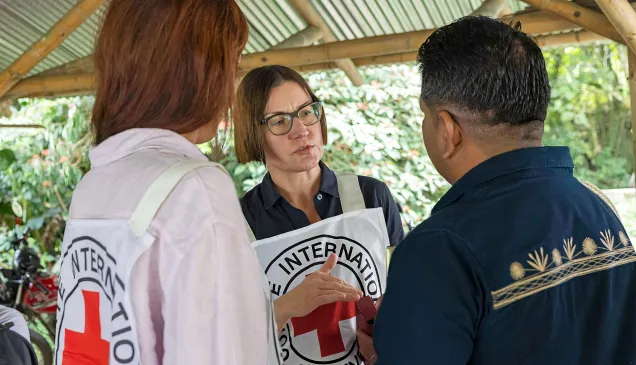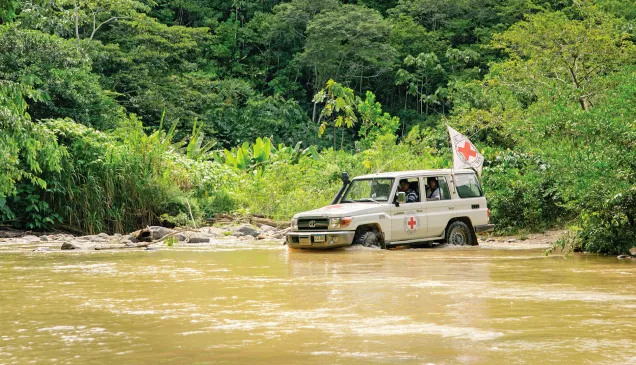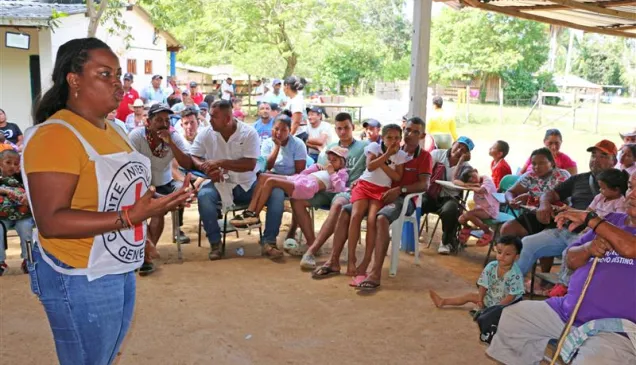Do we want to return to normality in Colombia?
In 2020, we witnessed the humanitarian situation in Colombia deteriorate as the pandemic led to an escalation of the armed conflict and violence.

Lorenzo Caraffi
Head of the ICRC Delegation in Colombia
This is now my third time working in Colombia for the International Committee of the Red Cross (ICRC) and, as I take up my new role as head of delegation, it strikes me that Colombians are still incredibly resilient– something I first observed back in the 2000s.
It is a quality that has helped them overcome a host of difficulties, but this time, I can see that new challenges have emerged, alongside existing ones.
I would like to start by saying that I have every confidence in the ability of our humanitarian teams to respond to the needs of people affected by armed conflict and violence. I would also like to express my support for all Colombians, especially those who have been affected by COVID-19, and the country's health-care workers.
We often hear that 2020 was not a normal year, but what kind of normality does Colombia hope to return to?
We must all play our part to ensure that the new normal goes far beyond the collective effort to overcome COVID-19. Returning to a normality where civilians fear for their lives and thousands of people across the country are unable to live in dignity is unthinkable.
The ICRC reports that the pandemic has exacerbated the consequences of at least five non-international armed conflicts in Colombia. Communities from across the country have been particularly affected by armed groups breaking humanitarian law, including in the departments of Antioquia, Cauca, Chocó, Nariño, Norte de Santander and in some parts of south-eastern Colombia.
We must never accept that the word "normal" means hundreds of people falling victim to an explosive device, being forced to leave their homes or having to search for missing loved ones. Our hope is that with the support of society as a whole and the commitment of all armed actors, these serious violations of humanitarian law will no longer be a part of daily life and this suffering will finally come to an end.
Last year, we faced our greatest ever challenge as an organization: remaining in close proximity to communities in conflict zones without risking their health or that of our staff. In 2021, our efforts will continue to focus on maintaining our proximity to people who need our help.
Like most countries, Colombia is facing its most complex public health challenge in recent history: the roll-out of the COVID-19 vaccine. Globally, access to basic health care is particularly difficult for those who are marginalized, and this is also true for people living in conflict zones, internally displaced people, migrants, asylum seekers and detainees, all of whom are vulnerable to COVID-19 and have a right to be protected against it.
The International Red Cross and Red Crescent Movement stands ready to help Colombia's health-care workers vaccinate those most at risk across the country.
More about 'Humanitarian challenges 2020'
- Colombia, plunged into isolation by pandemic and conflict
- Overview of the humanitarian situation in Colombia
- ICRC calls to action for Colombia in 2021
- Explosive hazards: a silent threat in Colombia
- Health services deal with a pandemic and violence in Colombia
- 120,000 reasons to keep searching in Colombia: the missing persons
- Prisons, migration, and use of force: important topics for Colombia



